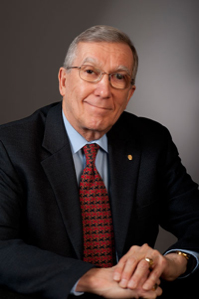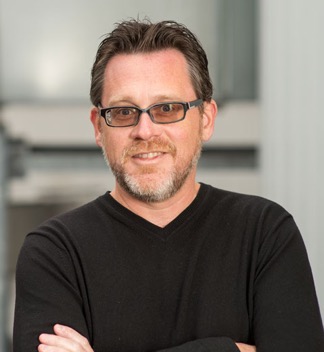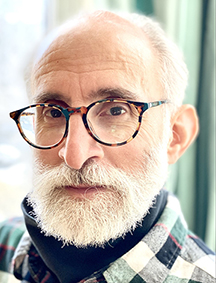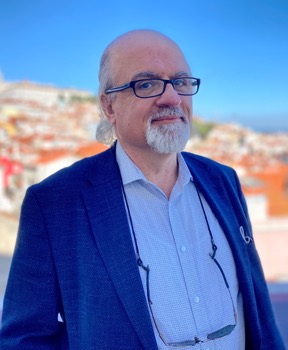Candidates for Upcoming Election to Faculty Newsletter Editorial Board
The MIT Faculty Newsletter has represented the views of MIT faculty for almost 35 years. Since its inception, the Newsletter has been maintained by a volunteer Editorial Board, over time involving more than 50 members of the faculty from all Schools of the Institute. Since 2008 we have followed a formal nomination and election process with direct electronic election of Board members by an electorate of the full faculty and emeritus faculty. Given the absence at MIT of a faculty senate or elected council, the FNL is one of the very few independent voices of the MIT Faculty. We hope you will participate this year when you receive the email ballot.
The origin of the Faculty Newsletter (FNL) was in response to the dissolution by then-Provost John Deutch, of the Department of Applied Biological Sciences (ABS) in December of 1988. The administration’s process was in violation of the Rules and Regulations of the Faculty. In response, a group of senior faculty prepared a petition calling for a reversal of the administration’s actions. At the time they had difficulty in circulating the draft, due to the unwillingness of the administration to make faculty mailing lists available. In addition, with the faculty meeting agenda set and the faculty meeting chaired by the president, fully open discussion was not easy. The FNL emerged as an effort to establish open lines of communication among faculty (web.mit.edu/ fnl/volume/201/fnl00.pdf).
Though the dissolution was not reversed, the faculty resistance resulted in all ABS faculty and students remaining employed at MIT. The report of the Committee appointed to review the affair can be found at web.mit.edu/ jbelcher/www/ABS/.
During the ensuing years, the Newsletter has provided a forum for expression of faculty concerns and views, a major channel of communication among the faculty, and a means for candid debate on difficult issues. The primary guiding principles have been to provide open access for faculty and emeritus faculty to express views on issues of concern. This is ensured through control of editorial policy by the faculty Editorial Board, independent of influence by the MIT administration.
The Newsletter has come to be widely read, not just at MIT but outside as well, through the online edition at fnl.mit.edu. The FNL – though focused on MIT – also serves as a forum for discussion of critical national and international issues. With the support and involvement of MIT’s faculty, the Newsletter will continue to play an important role at MIT and beyond.

Nicholas Ashford
http://ashford.mit.edu
Nicholas Ashford is Professor of Technology & Policy and Director of the Technology & Law Program at MIT, where he teaches courses in Environmental Law, Policy, and Economics; Law, Technology, and Public Policy; and Technology, Globalization and Sustainable Development. He is a Faculty Associate of the Center for Socio-technical Research in the School of Engineering; the Institute for Work and Employment Research in the Sloan School of Management; and the Environmental Policy Group in the Urban Studies Department. He holds both a Ph.D. in Chemistry and a Law Degree from the University of Chicago, where he also received graduate education in Economics.
Dr. Ashford is the co-author of two textbooks/readers used in his classes: Technology, Globalization, and Sustainable Development: Transforming the Industrial State and Environmental Law, Policy and Economics: Reclaiming the Environmental Agenda. He has recently written two articles for the MIT Faculty Newsletter on Misinformation and on Distracted Driving. Other publications include writings on community participation in energy policy, addressing inequality, universal basic income and inclusive capitalism, the role of environment in cancer, the four-day workweek, the precautionary principle, and major challenges to education for sustainable development. These research areas should encourage views from the MIT faculty in the FNL Editorial Board as important sources of ideas and reforms in the exercise of academic freedom.
Dr. Ashford was a public member and chairman of the National Advisory Committee on Occupational Safety & Health, served on the EPA Science Advisory Board, and was chairman of the Committee on Technology Innovation & Economics of the EPA National Advisory Council for Environmental Policy and Technology. Dr. Ashford is a Fellow of the American Association for the Advancement of Science and former chair of its Section on Societal Impacts of Science and Engineering.

Christopher “Kit” Cummins (current Editorial Board member)
ccclab.mit.edu
I am an MIT alum (PhD 1993, Chemistry) and joined the faculty here in the same department immediately following my first MIT Commencement; subsequently it seems as if I graduated many more times during my time as an Associate Faculty Marshal and member of the Institute’s Commencement Committee, representing the School of Science. I’ve enjoyed serving on Institute committees over the years, including the CAP, as a vehicle not only to serve but also to get to know the Institute and our faculty. I’m a first year and major advisor, and have served also as our department’s UROP coordinator. My research interests reside in devising methods for the synthesis of new molecular forms of matter, and I love to read, write, and edit pieces both inside and outside of my comfort zone. It would be a great honor for me to be re-elected to the FNL Editorial Board, where I may practice and sharpen those skills in service of the true and independent voices of the MIT faculty.

Helen Elaine Lee (current Editorial Board member)
https://cmsw.mit.edu/profile/helen-elaine-lee/
Service on the Faculty Newsletter’s Board is an opportunity to bring my background as a writer to the MIT community. I am aware of the power of words to unite and inspire us in addressing academic, ethical, social, and political issues, and in agitating for change. The Faculty Newsletter is the MIT forum where we are all able to raise our voices, in affirmation and dissent, and I look forward to continuing to foster faculty engagement in discussions of our community’s pressing issues. Through this forum we can all have a role in shaping the Institute and ensuring that we are self-critical, inclusive, equitable, and creative in meeting the myriad challenges and opportunities before us.

Anthony Patera
https://meche.mit.edu/sites/default/files/cv/Patera_shortCV.pdf
I arrived at MIT in 1975. I obtained my SB and SM in Mechanical Engineering, and my PhD in Applied Mathematics. I then joined the faculty of Mechanical Engineering. I am currently Professor of Mechanical Engineering and Ford Professor of Engineering. My research and teaching interests center on mathematical modeling and computational methods for partial differential equations, with applications in solid mechanics, acoustics, fluid dynamics, and heat transfer.
The Faculty Newsletter plays an important part in the articulation and promotion of faculty participation in the research, education, and service missions of the Institute. Some traditional roles of faculty are now increasingly transferred to professional offices within the Institute. In some cases this shift is well warranted and all parties benefit. However, in other cases, although we might improve our efficiency, we may also sacrifice the holistic academic spirit which has long been a hallmark of MIT. In this context, I believe the Faculty Newsletter can provide a forum for extended and deliberate discussion of faculty imperatives in the MIT of the future.

Nasser Rabbat (current Editorial Board member)
https://architecture.mit.edu/people/nasser-rabbat
Nasser Rabbat is the Aga Khan Professor and the Director of the Aga Khan Program for Islamic Architecture at MIT. He has been a faculty member for the last 32 years and completed his PhD at MIT as well. An architect and a historian, his scholarly interests include Islamic architecture, urban history, heritage studies, Arab history, contemporary Islamic art, and post-colonial criticism. He has published eight books on topics ranging from Mamluk architecture to Antique Syria, 19th century Cairo, Orientalism, and urbicide. His most recent books are Writing Egypt: al-Maqrizi and his Historical Project (2022) and ‘Imarat al-Mudun al-Mayyita (The Architecture of the Dead Cities) (2018). He has been a contributor to several Arabic newspapers on cultural, political, and artistic issues since 1998.
“Serving on the MIT Faculty Newsletter Editorial Board will allow me to advocate for a more committed engagement with the less fortunate parts of the world at MIT, to promote a better integration of the humanities in MIT’s mission and image, and to bring my journalistic experience to the institution in which I have spent all of my career.”


